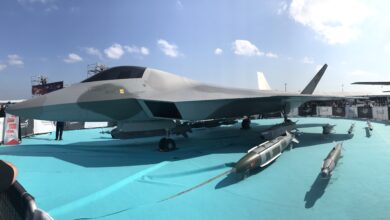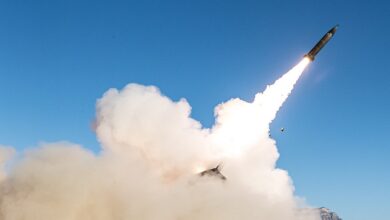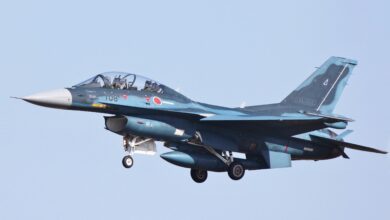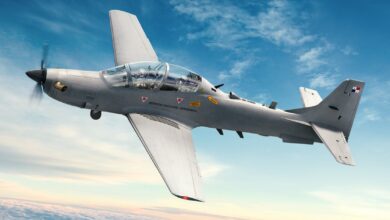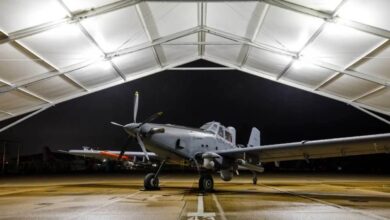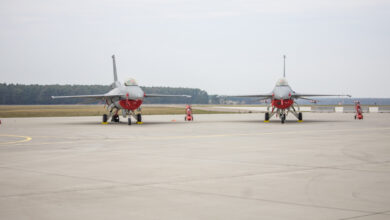Sustainable Fuel-Powered British Voyager Tanker Performs Air-to-Air Replenishment
The UK Royal Air Force has conducted an air-to-air replenishment using a sustainable aviation fuel-powered Voyager tanker.
The demonstration was part of the service’s efforts to transition from fossil fuels and achieve net zero carbon emission flights by 2040.
During the test, the Voyager was deployed over the North Sea and returned to its home base at RAF Brize Norton via Farnborough.
It was powered by a combination of traditional fuel and 43 percent of the specialized fuel.
Last year, the air force conducted a similar demonstration in which a Voyager was flown with 100 percent sustainable fuel.
‘Crucial Transformation’
According to the UK, the sustainable aviation fuel used in the latest trial consists of waste-based feedstocks such as cooking oil.
Using the alternative cuts carbon emissions by up to 80 percent compared to existing jet fuels. This approach is considered key to reducing the Royal Air Force’s dependence on fossil fuels and related global supply chains while retaining operational resilience.

“Greater use of alternative and sustainable fuel can only lead to positive outcomes for Defence, the United Kingdom, and our collective endeavour against climate change,” UK Defence Minister Annabel Goldie stated.
“This is not an easy undertaking by the RAF, but time and again we see that by working collaboratively with our partners across industry we can achieve crucial transformation.”
A ‘Worthwhile’ Challenge
The North Sea demonstration was conducted during the Sustainable Skies World Summit 2023, an international event showcasing sustainable aerospace solutions.
At the summit, government and industry partners are meeting to discuss how to produce at least 10 percent of sustainable aviation fuel by 2030 and achieve zero emissions on transatlantic flights.
“The continued success of sustainable aviation fuel is reassuring to see. If we are to achieve our net zero goal by 2040 then exploiting these technologies is going to be an enormous but worthwhile endeavour,” Royal Air Force Chief of Staff Air Vice-Marshal Paul Lloyd said.
“Despite the challenge, the benefits of reducing our reliance on traditional supply chains and fossil fuels outweigh it. The RAF is proud to be leading in this area.”



